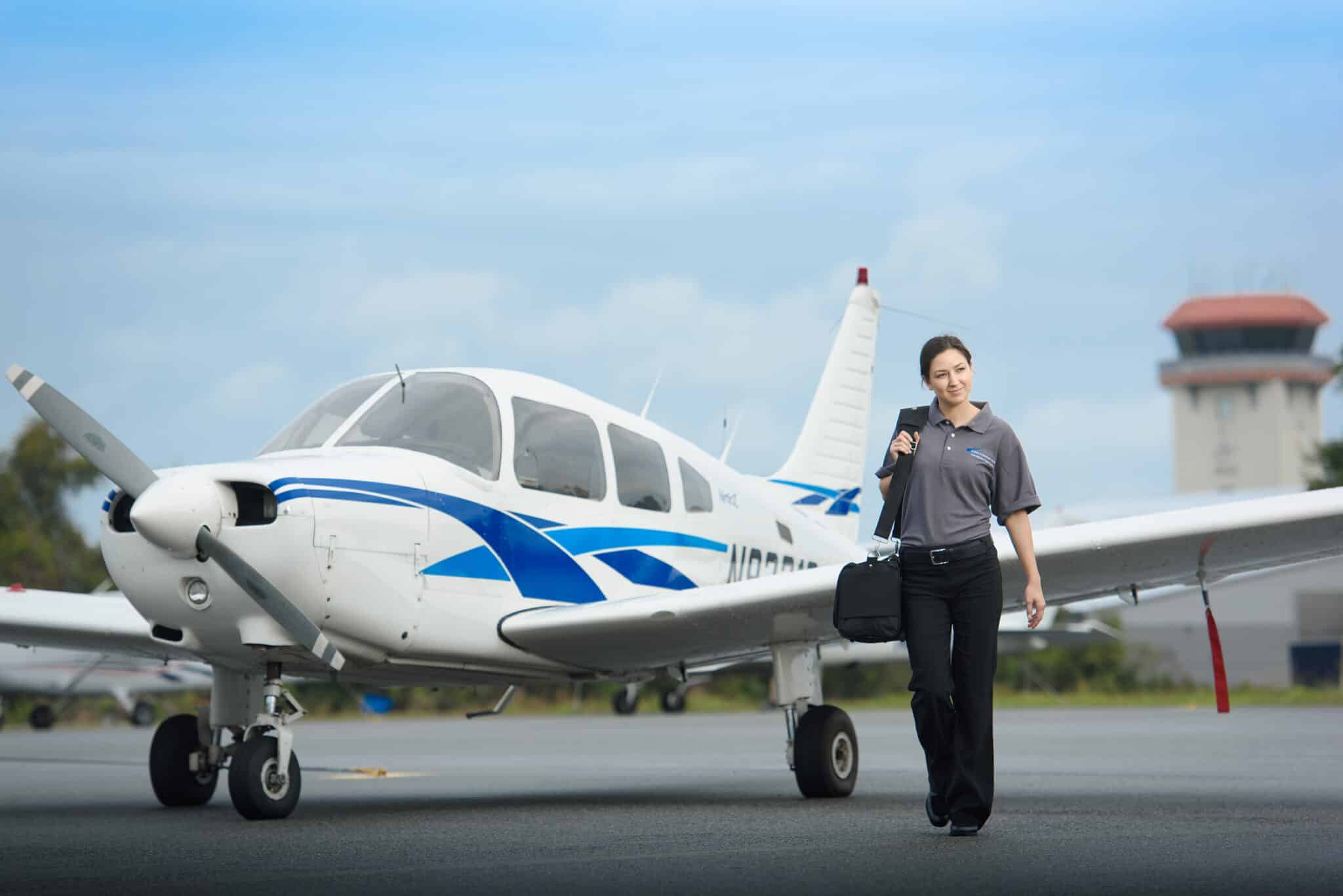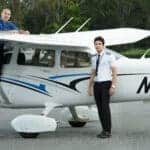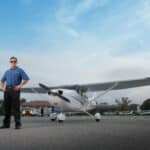DGCA Exam Fees: #1 Ultimate Guide to Costs and Payments for Pilot Training

Have you ever dreamed of flying planes? Many people in India share this exciting dream! Becoming a pilot is like embarking on an amazing journey where you get to soar through the clouds and explore the skies. As more planes take to the air in India, there are many chances for new pilots to spread their wings.
But before you can fly, there’s something important to know about – the DGCA Exam Fees. Think of these as your ticket to a pilot career. The DGCA (that’s short for Directorate General of Civil Aviation) is like the guardian of India’s skies. They make sure everyone who wants to fly planes is properly trained and certified.
If you’re wondering about how to become a pilot, one of the first things you’ll need to understand is these DGCA Exam Fees. Don’t worry – we’re here to help you understand everything about these fees and costs. Whether you’re just starting to think about becoming a pilot or you’re ready to begin your training, this guide will help you plan your journey to the skies!
Understanding the DGCA Exam Fees
To become a pilot in India is an exhilarating experience, but it also comes with its share of responsibilities, particularly when it comes to understanding the financial implications. The DGCA Exam Fees play a pivotal role in this journey, representing the costs associated with the examinations set by the Directorate General of Civil Aviation. Established to regulate civil aviation in India, the DGCA is not only tasked with overseeing pilot training but also with ensuring that every pilot is thoroughly prepared to meet the challenges of flying.
What is the cost of flying school in India?
Understanding the breakdown of these fees is crucial for aspiring pilots as they embark on their training. The DGCA has set forth a comprehensive framework that outlines both the examination syllabus and the associated fees. This framework is designed to ensure that candidates are well-equipped with the knowledge and skills needed to fly safely and competently. The fees charged by the DGCA cover a range of administrative costs, including the development of exam materials, the organization of testing facilities, and the compensation of examiners. Each component plays a vital role in maintaining the integrity and rigor of the certification process.
Overview of the DGCA
The Directorate General of Civil Aviation is the apex regulatory body in India, responsible for overseeing all facets of civil aviation, including pilot training, aircraft operations, and air traffic management. Established under the Ministry of Civil Aviation, the DGCA aims to promote safe and efficient air transport systems in the country. As part of its mandate, the DGCA sets stringent standards that all aspiring pilots must meet before they can operate aircraft independently.
One of the critical responsibilities of the DGCA is to conduct examinations that assess candidates’ theoretical knowledge and practical skills. These examinations are meticulously designed to ensure that pilots possess the necessary expertise in areas such as navigation, meteorology, and aircraft systems. The DGCA Exam Fees not only reflect the cost of administering these assessments but also contribute to the ongoing development of the aviation sector in India. By investing in training and examination infrastructure, the DGCA ensures that pilots are well-prepared to handle the complexities of modern aviation, ultimately enhancing the safety and efficiency of air travel.
Understanding the financial commitment involved in pilot training, particularly the DGCA Exam Fees, is essential for anyone considering a career in aviation. As you navigate this journey, being informed about these fees will empower you to plan effectively and make strategic decisions that align with your aspirations of flying high in the Indian skies.
Purpose of Exam Fees
The DGCA Exam Fees are not merely a financial obligation; they serve several critical functions that underpin the integrity and effectiveness of pilot training in India. Understanding the purpose behind these fees is essential for aspiring pilots as they navigate their educational journey.
One of the primary purposes of the DGCA Exam Fees is to cover the operational costs associated with the examination process. Administering standardized tests requires significant resources, including qualified personnel, testing facilities, and the development of comprehensive exam materials. These fees help ensure that the exams are conducted in a structured and organized manner, allowing candidates to focus on demonstrating their skills without the distraction of logistical issues. By providing the necessary funding, the DGCA can maintain high standards for exam administration, which is crucial for the integrity of the certification process.
Moreover, the fees contribute to the ongoing development and improvement of examination content. The aviation sector is dynamic, with advancements in technology and changes in regulations. To keep pace with these developments, the DGCA must regularly update the exam syllabus and materials to reflect current industry standards and practices. The funds collected from exam fees play a vital role in this continuous improvement process, ensuring that candidates are tested on relevant and up-to-date knowledge.
In addition to logistical and content-related aspects, the DGCA Exam Fees also support the training and certification of examiners. The quality of the examination process relies heavily on the expertise of the examiners who assess candidates’ knowledge and skills. The fees help fund the training and professional development of these individuals, ensuring they are equipped to evaluate candidates accurately and fairly. By investing in the qualifications of examiners, the DGCA enhances the overall credibility of the examination system.
Lastly, understanding the purpose of these fees fosters a greater appreciation among candidates for the value of their education and the standards they are expected to meet. Aspiring pilots must recognize that the fees they pay contribute to a robust system designed to ensure their safety and competency in the skies. This awareness can motivate candidates to approach their training with the seriousness it deserves, knowing that their investment is directly linked to the quality of their education and the integrity of the certification process.
Breakdown of DGCA Exam Fees
When it comes to DGCA Exam Fees, aspiring pilots need to be aware of the different costs associated with obtaining various pilot licenses. The fees can vary significantly depending on the type of license you are pursuing, as well as any additional requirements.
Fee Structure for Different Licenses
The fee structure for DGCA exams primarily encompasses three types of pilot licenses: the Private Pilot License (PPL), the Commercial Pilot License (CPL), and the Airline Transport Pilot License (ATPL).
1. Private Pilot License (PPL): The fees for obtaining a PPL are generally lower than those for commercial licenses, reflecting the limited scope of this certification. Candidates can expect to pay a nominal fee for the theoretical exams, typically around INR 5,000 to INR 10,000. Additional costs may include fees for the flight training and medical examinations, which can vary based on the training school chosen.
2. Commercial Pilot License (CPL): The CPL is essential for those looking to fly commercially, and the associated DGCA Exam Fees are higher. Candidates can expect to pay between INR 10,000 to INR 15,000 for the written examinations alone. Given that the CPL encompasses more extensive training and multiple subjects, additional costs such as ground school tuition and flight training can significantly increase the overall expense.
3. Airline Transport Pilot License (ATPL): The ATPL is the most advanced pilot certification, requiring a significant investment of time and money. The exam fees for the ATPL typically range from INR 15,000 to INR 25,000 for the theoretical examinations. Furthermore, candidates pursuing this license will incur substantial costs related to flight training, simulator sessions, and extensive medical evaluations.
Additional Costs Associated with DGCA Exam Fees
While the DGCA Exam Fees for licenses are a critical component of the overall expenditure, aspiring pilots should also consider other associated costs that contribute to their training.
Medical Examination Fees: A comprehensive medical examination is mandatory for all aspiring pilots, ensuring that they meet the necessary health standards to operate an aircraft. The fees for medical evaluations can vary widely, usually falling between INR 5,000 to INR 10,000, depending on the clinic or hospital conducting the examination. Candidates must obtain a Class 1 medical certificate from an approved medical examiner recognized by the DGCA.
Ground School Tuition: Ground school is an essential part of pilot training, providing theoretical knowledge in subjects such as navigation, meteorology, and aircraft systems. Ground school tuition fees can range from INR 50,000 to INR 1,00,000 or more, depending on the training institution and the duration of the program. This investment is critical, as the knowledge gained during ground school is foundational for passing the DGCA exams.
Flight Training Costs: The cost of flight training is often the most significant expense for aspiring pilots. Depending on the flying school, the rates for flight hours can vary significantly, typically ranging from INR 5,000 to INR 10,000 per hour. Given that aspiring pilots need a minimum number of flight hours to qualify for their licenses, these costs can quickly add up. For instance, to obtain a CPL, candidates must log a minimum of 200 flight hours, making this a substantial part of the total expenses.
Re-examination Fees: In the event that a candidate does not pass their exam on the first attempt, re-examination fees will apply. These fees can vary depending on the specific exam but generally range from INR 2,000 to INR 5,000 for each attempt. It’s important for candidates to budget for potential re-examinations, as they are not uncommon in the rigorous training process. Understanding the implications of failing an exam can help candidates prepare better and avoid additional costs.
Payment Options for DGCA Exam Fees
Understanding the payment options available for DGCA Exam Fees is crucial for aspiring pilots, ensuring that they can complete the necessary transactions without complications.
Accepted Payment Methods
The DGCA offers multiple payment methods to facilitate the fee payment process.
Online Payment Options: Candidates can conveniently pay their exam fees online through the DGCA’s official website. This method allows for secure transactions and provides immediate confirmation of payment, streamlining the process for busy aspiring pilots. The DGCA’s online portal is user-friendly and designed to make the payment process as seamless as possible.
Bank Transfers: For those who prefer traditional payment methods, bank transfers are also accepted. Candidates can obtain the necessary bank details from the DGCA website, ensuring they make their payments accurately. It is crucial to double-check the details to avoid delays in the processing of their applications.
In-Person Payments at Designated Locations: Candidates can also opt to pay their fees in person at designated DGCA offices. This method may be beneficial for those who prefer to handle transactions face-to-face or have specific inquiries regarding their payments. When choosing this option, it is advisable to check the office hours and any documentation required for the payment process.
Refund and Cancellation Policies
Understanding the refund and cancellation policies associated with DGCA Exam Fees is essential for candidates. The DGCA typically outlines these policies on its official website, ensuring transparency in financial transactions. In general, candidates may be eligible for a refund if they withdraw from an examination within a specified timeframe. However, candidates should carefully review the policies to understand the specific conditions and timelines associated with refunds. It’s advisable to keep records of all transactions and communication with the DGCA for future reference.
Tips for Managing DGCA Exam Fees
Managing DGCA Exam Fees effectively is essential for aspiring pilots to avoid unexpected financial burdens. Here are some tips to help candidates navigate their expenses:
Budgeting for Pilot Training: Creating a budget is crucial for anyone pursuing a career in aviation. Candidates should list all potential expenses, including exam fees, medical evaluations, ground school tuition, and flight training costs. Establishing a clear budget will help candidates prioritize their spending and make informed financial decisions throughout their training. Additionally, it can be helpful to account for incidental expenses, such as travel costs to the training facility or study materials needed for exam preparation.
Scholarships and Financial Aid: Aspiring pilots should explore potential scholarships and financial aid opportunities. Various organizations and aviation schools offer scholarships specifically for pilot training, which can significantly reduce the financial burden. Researching these options and applying for relevant scholarships can help candidates manage their overall costs more effectively. Some flying schools also have partnerships with financial institutions that provide loans tailored for aviation students.
Cost-Saving Tips: Finding ways to reduce costs without compromising the quality of training can make a significant difference for aspiring pilots. Candidates should consider comparing different flight schools and training programs to find the best rates and quality of instruction. Additionally, looking for discounts or promotions on training packages can also provide potential savings. Networking with other students or pilots may reveal additional tips or resources to help manage costs effectively.
Conclusion
Understanding DGCA Exam Fees is a vital component of planning a successful pilot training journey in India. By breaking down the costs associated with different licenses, additional expenses, and available payment options, aspiring pilots can better prepare themselves for the financial commitments required.
Pursuing a career in aviation is a challenging yet rewarding endeavor, and being well-informed about the associated fees can help candidates make sound financial decisions. With thorough planning, research, and dedication, aspiring pilots can navigate the costs effectively, ultimately reaching their goal of flying high in the Indian skies.
As the aviation industry continues to grow, the demand for skilled pilots will remain high. By investing time and resources into understanding the DGCA Exam Fees and the overall training process, you will be well on your way to achieving your dream of becoming a qualified pilot in India. So take the first step, plan wisely, and get ready to soar into your aviation career.
If you’re considering a career as a pilot and need assistance with managing DGCA exam fees and pilot training costs, don’t hesitate to reach out to Florida Flyers Flight Academy’s team of experienced aviation consultants. We offer personalized guidance and support to help you navigate the financial aspects of your pilot training journey.
Contact the Florida Flyers Flight Academy India Team today at +91 (0) 1171 816622 to learn more about the Private Pilot Ground School Course.



